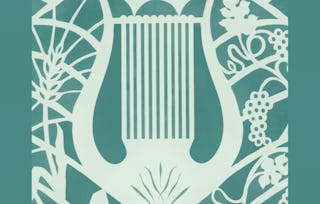The Talmud is one of the richest and most complicated works of literature the world has ever known. Since being composed around 1500 years ago it has inspired not only religious reverence but significant intellectual engagement. In this course learners will be introduced to the unique characteristics of this text and the challenges that inhere in studying it while studying a chapter of the Talmud. Students of the course can expect to develop an appreciation for how the Talmud works and why it continues to inspire religious and intellectual devotion. They will be challenged to employ critical reading skills and to analyze legal and historical concepts.

The Talmud: A Methodological Introduction

The Talmud: A Methodological Introduction

Instructor: Barry Scott Wimpfheimer
19,688 already enrolled
Included with
298 reviews
Skills you'll gain
Details to know

Add to your LinkedIn profile
8 assignments
See how employees at top companies are mastering in-demand skills

There are 8 modules in this course
The Talmud is a canonical work of Jewish literature that collects the ideas and arguments of rabbis who lived between the first and eighth centuries CE. This module explains the basics of how the Talmud was composed, why the Talmud matters and how it is accessed today.
What's included
5 videos9 readings1 assignment
The Talmud relies heavily on the authority and substance of its canonical predecessor, the Hebrew Bible. This module charts a trajectory from the biblical origins of the treatment of false testimony in Deuteronomy through its treatment within the second temple apocryphal book Susannah and the early Rabbinic law code, the Mishnah.
What's included
4 videos5 readings1 assignment
Interpretation is a major component of Rabbinic literature and the Talmud. This module introduces the specific features of Rabbinic interpretation of the Hebrew Bible—its assumptions and its reading tools.
What's included
3 videos4 readings1 assignment
Textual Criticism is a form of reading that looks to explain the meaning of a text by figuring out aspects of its composition history. This module will show how Talmudic passages are typically constructed and what scholars can do to figure out the original meaning of a text.
What's included
3 videos4 readings1 assignment
The historical range of the different centuries of rabbinic literature makes it possible to take note of changes in the ways the different rabbis thought about the Bible and law. This module will demonstrate how later rabbis have a more abstract way of thinking about law while simultaneously having a more restrictive way of reading the Bible.
What's included
3 videos3 readings1 assignment
Rabbinic literature consists of multiple works in three genres—Midrash, Mishnah and Talmud. This module introduces each of these different genres with a comparative analysis of texts related to false testimony in works of each type.
What's included
4 videos5 readings1 assignment
The Talmud contains many stories that feature historical figures from the rabbinic period. In this module we will demonstrate the difficulty of reading these stories as history and model the use of literary tools for reading such materials.
What's included
3 videos4 readings1 assignment
While some of the material we have studied is unsettling, we need to bear in mind that much of it is rabbinic idealization or fantasy. This module goes through both the fantasy of rabbinic power and the realities of the importance of the Talmud in the post-Talmudic age.
What's included
3 videos3 readings1 assignment
Instructor

Offered by
Explore more from History
 Status: Preview
Status: PreviewHebrew University of Jerusalem
 Status: Free
Status: Free Status: Free Trial
Status: Free TrialDuke University
 Status: Free
Status: Free
Why people choose Coursera for their career

Felipe M.

Jennifer J.

Larry W.

Chaitanya A.
Learner reviews
- 5 stars
70.80%
- 4 stars
20.80%
- 3 stars
5.70%
- 2 stars
1.67%
- 1 star
1%
Showing 3 of 298
Reviewed on Aug 28, 2017
This is a very well constructed introduction to the Talmud but I think it would be improved if it made more demands on the student in terms of reading assignments and exercises.
Reviewed on Feb 23, 2020
Thank you for the clear instruction about a difficult topic of study. I marvel at the Talmud and the Rabbis who contributed to the wisdom contained within.
Reviewed on Feb 17, 2019
Great way of introducing a topic as complex as the Talmud. It was surely amazing to have such course instructors who can rarely be matched both in eloquence and erudition. Overall it was fun!

Open new doors with Coursera Plus
Unlimited access to 10,000+ world-class courses, hands-on projects, and job-ready certificate programs - all included in your subscription
Advance your career with an online degree
Earn a degree from world-class universities - 100% online
Join over 3,400 global companies that choose Coursera for Business
Upskill your employees to excel in the digital economy
Frequently asked questions
To access the course materials, assignments and to earn a Certificate, you will need to purchase the Certificate experience when you enroll in a course. You can try a Free Trial instead, or apply for Financial Aid. The course may offer 'Full Course, No Certificate' instead. This option lets you see all course materials, submit required assessments, and get a final grade. This also means that you will not be able to purchase a Certificate experience.
When you purchase a Certificate you get access to all course materials, including graded assignments. Upon completing the course, your electronic Certificate will be added to your Accomplishments page - from there, you can print your Certificate or add it to your LinkedIn profile.
Yes. In select learning programs, you can apply for financial aid or a scholarship if you can’t afford the enrollment fee. If fin aid or scholarship is available for your learning program selection, you’ll find a link to apply on the description page.
More questions
Financial aid available,

